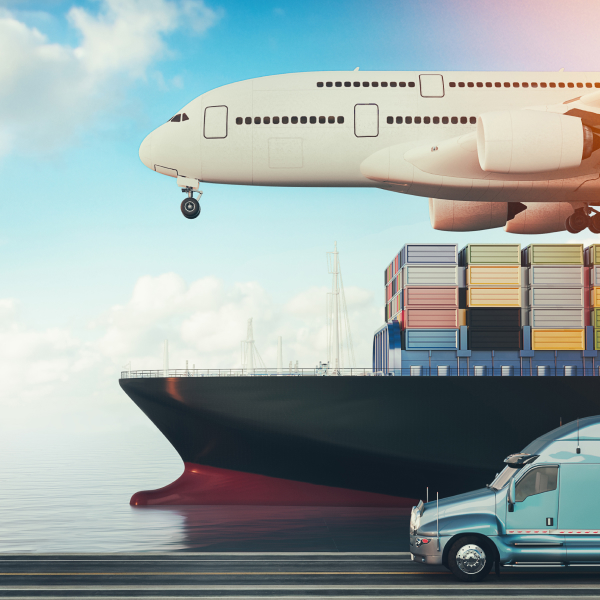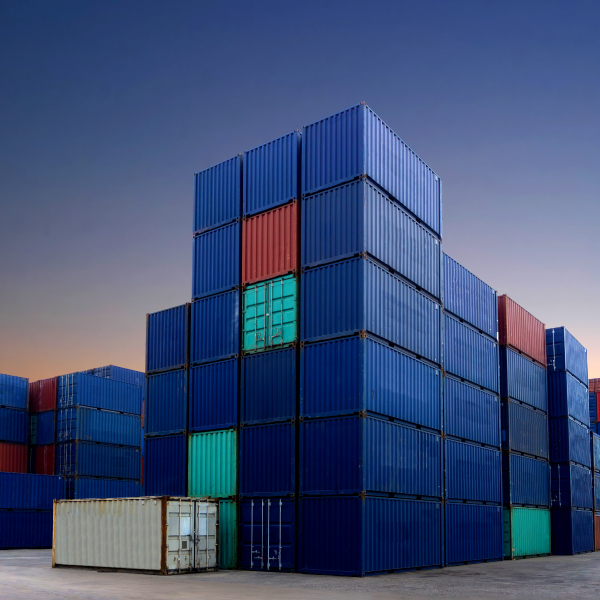
- Glide Courier Express
- July 20, 2024
- No Comments
As environmental concerns continue to rise, businesses across industries are increasingly prioritizing sustainability. The logistics and shipping sector, a significant contributor to global greenhouse gas emissions, is no exception. The drive towards eco-friendly logistics is reshaping the industry, as companies seek to reduce their carbon footprint and adopt more sustainable practices. This blog explores the key strategies and innovations in eco-friendly logistics, highlighting how the shipping industry is evolving to meet the demands of a greener future.
The Importance of Sustainable Logistics
Sustainable logistics is crucial for mitigating the environmental impact of shipping and transportation. The logistics sector is responsible for a substantial portion of global carbon emissions, primarily due to the reliance on fossil fuels for transportation and the energy-intensive nature of warehousing and distribution operations. By adopting eco-friendly practices, companies can reduce emissions, minimize waste, and contribute to a healthier planet.
Key Strategies for Eco-Friendly Logistics
- Adopting Electric and Hybrid Vehicles
One of the most impactful changes in eco-friendly logistics is the shift towards electric and hybrid vehicles. Traditional diesel-powered trucks contribute significantly to greenhouse gas emissions, but electric and hybrid vehicles offer a cleaner alternative. These vehicles produce zero or lower emissions, reducing the overall carbon footprint of transportation. Companies are investing in electric delivery vans, trucks, and even electric bicycles for last mile delivery, paving the way for more sustainable logistics.
- Optimizing Routes and Improving Fuel Efficiency
Route optimization is a critical strategy for reducing fuel consumption and emissions. Advanced technologies, such as artificial intelligence (AI) and machine learning, are being used to analyze real-time traffic data, weather conditions, and other variables to determine the most efficient delivery routes. By minimizing detours, avoiding traffic congestion, and reducing idle time, companies can lower fuel consumption and cut emissions.
- Implementing Sustainable Packaging Solutions
Packaging plays a significant role in logistics, and adopting sustainable packaging solutions is essential for reducing environmental impact. Companies are transitioning to eco-friendly packaging materials, such as recycled paper, biodegradable plastics, and reusable containers. Additionally, optimizing packaging design to reduce excess material and improve recyclability helps minimize waste and resource consumption.
- Enhancing Energy Efficiency in Warehousing
Warehousing operations are energy-intensive, but there are several ways to enhance energy efficiency and reduce environmental impact. Key strategies include:
- Energy-Efficient Lighting: Switching to LED lighting and implementing motion sensors can significantly reduce energy consumption in warehouses.
- Renewable Energy Sources: Installing solar panels or using wind energy to power warehouse operations can reduce reliance on fossil fuels and lower carbon emissions.
- Green Building Certifications: Adopting green building practices and obtaining certifications, such as LEED (Leadership in Energy and Environmental Design), ensures that warehouses meet high environmental standards.
- Promoting Circular Economy Practices
The concept of a circular economy focuses on minimizing waste and maximizing the reuse of resources. In logistics, this involves implementing practices such as:
- Product Return and Recycling Programs: Encouraging customers to return used products or packaging for recycling helps reduce waste and extend the lifecycle of materials.
- Reverse Logistics: Developing efficient reverse logistics processes allows companies to manage returns, refurbish products, and recycle materials effectively.
- Supporting Carbon Offsetting Initiatives
Carbon offsetting is a practice where companies invest in environmental projects to compensate for their carbon emissions. By supporting initiatives such as reforestation, renewable energy projects, and methane capture, businesses can offset their emissions and contribute to global sustainability efforts. Many logistics companies are integrating carbon offsetting into their sustainability strategies to achieve carbon neutrality.
Technological Innovations Driving Sustainability
Several technological innovations are enhancing the sustainability of logistics operations:
- Telematics and Fleet Management Systems: These systems provide real-time data on vehicle performance, fuel consumption, and driving behavior. By analyzing this data, companies can optimize fleet operations and reduce emissions.
- Smart Warehousing Solutions: Technologies such as automated storage and retrieval systems (ASRS), robotics, and artificial intelligence are improving efficiency and reducing energy consumption in warehouses.
- Green Logistics Platforms: Digital platforms that focus on green logistics offer tools for managing and tracking sustainability metrics, helping companies to monitor their environmental impact and identify areas for improvement.
The Future of Eco-Friendly Logistics
The shift towards eco-friendly logistics is gaining momentum, driven by regulatory pressures, consumer demand, and corporate responsibility. As sustainability becomes a central focus for businesses, the logistics industry will continue to innovate and adopt new practices to reduce its environmental footprint.
The future of eco-friendly logistics will likely see further advancements in green technologies, increased adoption of renewable energy sources, and more comprehensive sustainability strategies. Companies that lead the way in implementing sustainable practices will not only contribute to a healthier planet but also gain a competitive advantage in a market that increasingly values environmental responsibility.
In conclusion, eco-friendly logistics is more than just a trend; it is a necessary shift towards a more sustainable and responsible industry. By adopting practices such as electric and hybrid vehicles, optimizing routes, implementing sustainable packaging, and enhancing energy efficiency, the logistics sector can make significant strides towards reducing its environmental impact. As the industry continues to evolve, the commitment to sustainability will play a crucial role in shaping the future of logistics and ensuring a greener world for generations to come.








Leave A Comment